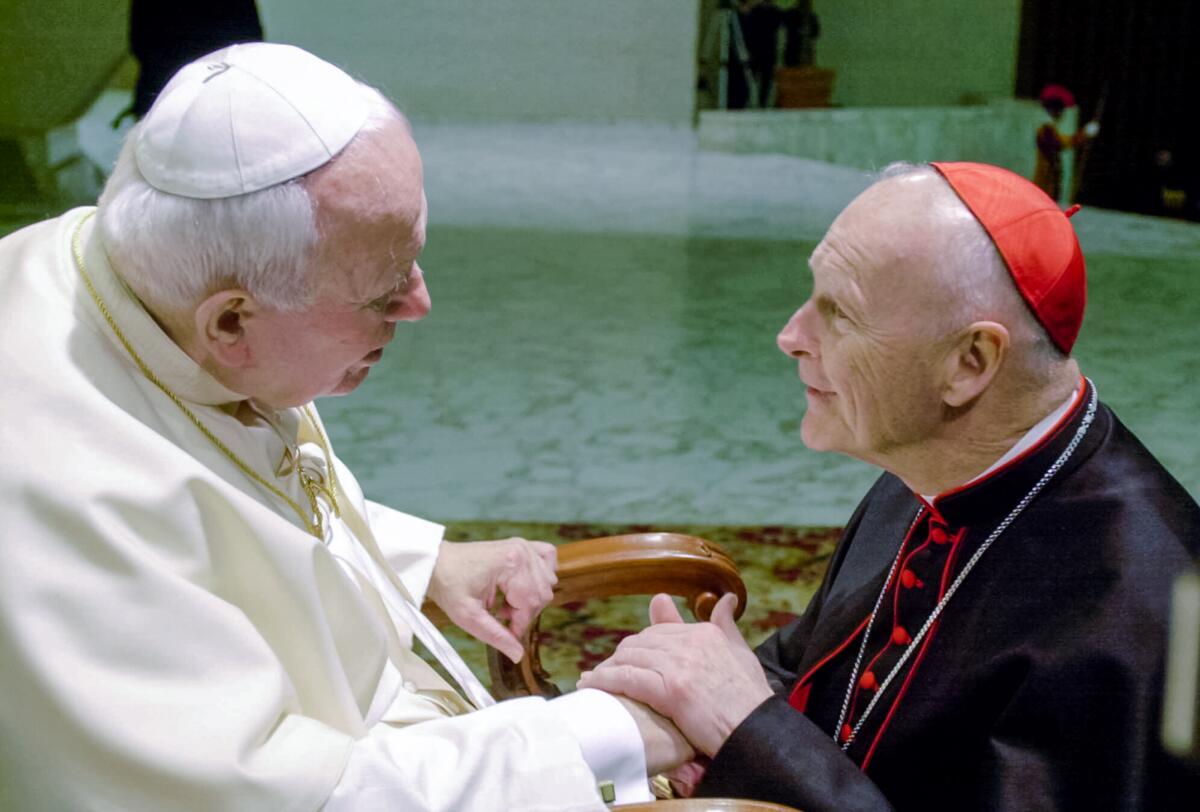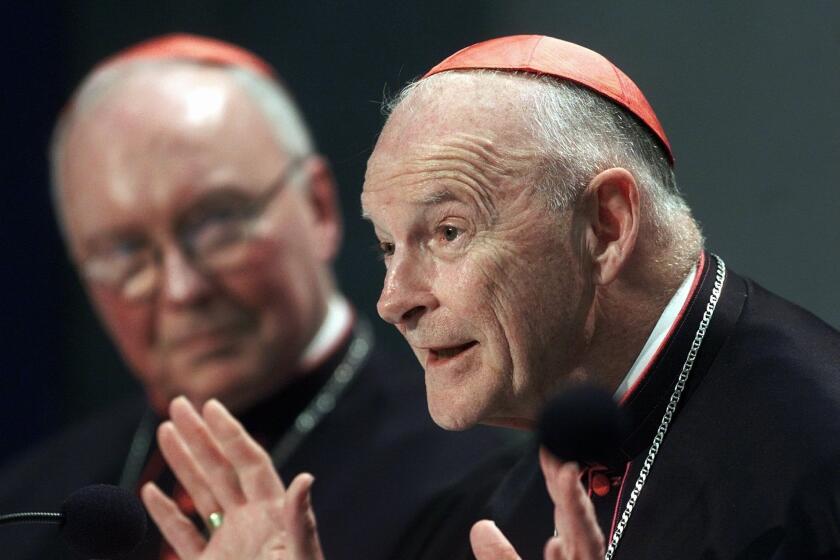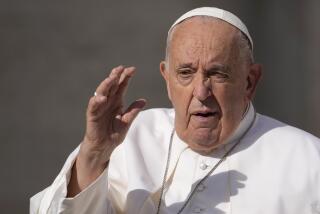Pope vows to end sexual abuse in the church after damning McCarrick report

- Share via
ROME — Pope Francis pledged Wednesday to rid the Roman Catholic Church of sexual abuse and offered prayers to victims of Theodore McCarrick, a day after the Vatican released a detailed report into the decades-long church cover-up of the American former cardinal’s sexual misconduct.
Francis concluded his weekly general audience Wednesday by referring to the “painful case” of McCarrick’s abusive behavior and the church’s failure to stop it.
“I renew my closeness to victims of any abuse and commitment of the church to eradicate this evil,” Francis said. He then paused silently for nearly a minute, apparently in prayer.
The Vatican report blamed a host of bishops, cardinals and former popes for downplaying and dismissing mountains of evidence of McCarrick’s misconduct starting in the 1990s.
Francis himself was spared criticism. He defrocked the 90-year-old McCarrick last year after a separate Vatican investigation found that he had sexually abused adults as well as children.
The report released Tuesday blamed the late Pope John Paul II for having appointed McCarrick archbishop of Washington, D.C., in 2000 and making him a cardinal, despite having commissioned an inquiry that found he had shared his bed with seminarians.
Here are key findings from the two-year investigation into the rise and fall of ex-Cardinal Theodore McCarrick, based on documentation and interviews with witnesses.
In his remarks Wednesday, however, Francis held the late pope — who is now a Catholic saint — up for praise. Noting that Wednesday marked Independence Day for Poland, John Paul’s native land, Francis quoted his predecessor as telling young people what it meant to be truly free.
“While we thank the Lord for the gift of national and personal freedom, what St. John Paul II taught young people comes to mind,” Francis said. He then cited John Paul as saying that being free means being “a man of upright conscience, to be responsible, to be a man ‘for others.’”
More to Read
Sign up for Essential California
The most important California stories and recommendations in your inbox every morning.
You may occasionally receive promotional content from the Los Angeles Times.














